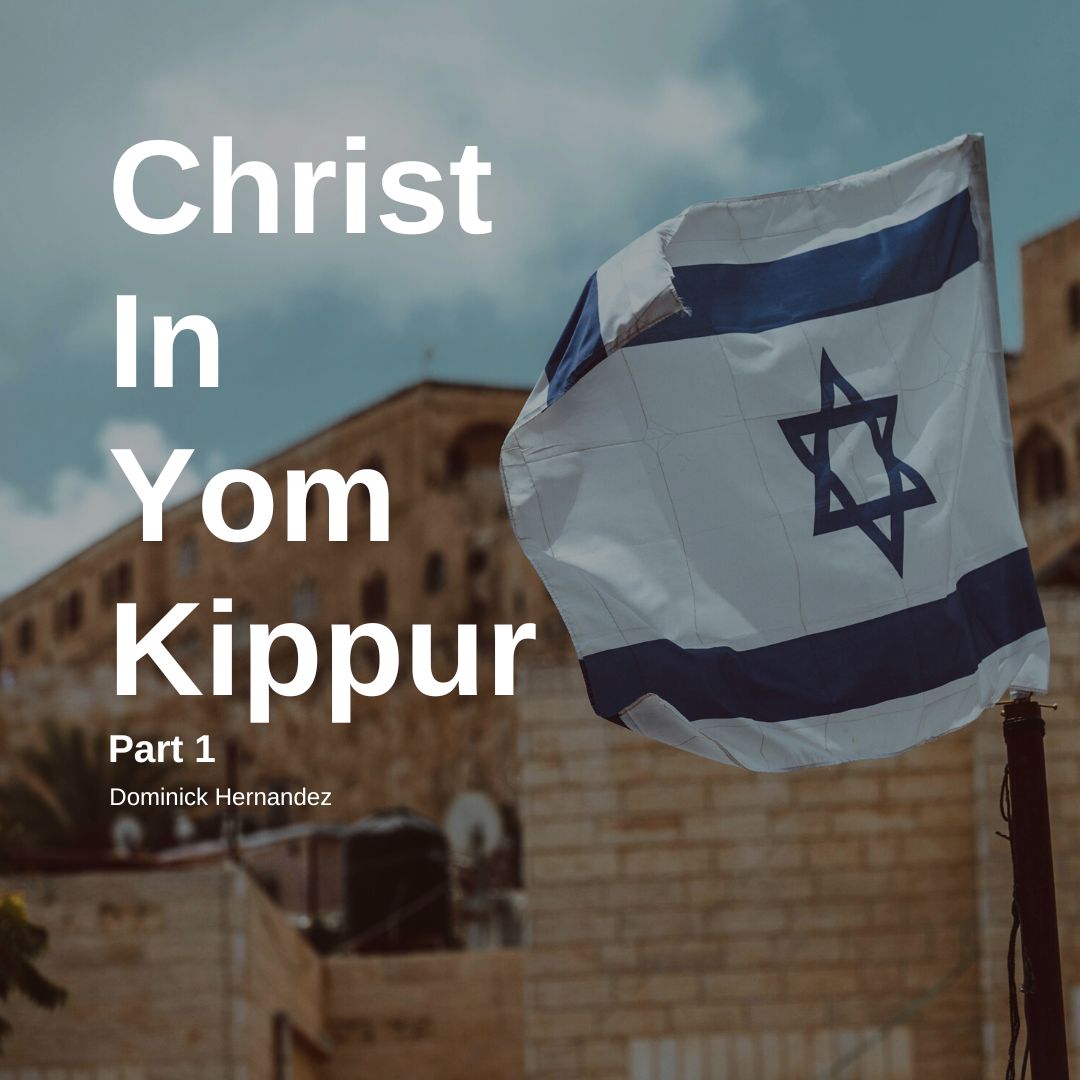
Editor’s Note: This article was previously published on September 15, 2021. This year (2023), the 10th day of the Jewish month of Tishrei runs from the evening of September 24 until sunset on September 25.
Biblical Law and My Contempt for Fantasy Literature
Watching, reading or listening to fantasy literature are insufferable experiences for me. I do not like The Lord of the Rings; I have a difficult time following The Chronicles of Narnia; Harry Potter is frustrating to me. It is safe to say that I simply do not appreciate, nor do I really see any value in, the fantasy genre.
I have tried to engage with this material—whether through obtaining the books, or mostly, by viewing the movie versions of these stories. I have repeatedly tried to watch The Lord of the Rings and Harry Potter. I fall asleep. I have all of The Chronicles of Narnia on my bookshelf. They have been there for years.
I cannot—for the life of me—get into these stories.
I’ve started to realize why I have a difficult time appreciating fantasy; I do not care for anything that I perceive as not immediately applicable to life. Once a child goes into a closet and enters another world, or an 11-year-old boy starts to ride on a broomstick, I completely lose focus. Since these types of things simply do not happen in reality, I find myself questioning why I would fiddle with watching/reading these stories.
I know, beloved reader, that you might be angling your mouse toward the corner of this page, ready to dismiss the rest of this article because of my criticism of a genre that so many Christians hold close to their hearts—But, I beg you not to leave!
My contempt for fantasy literature is an apt illustration of what I (a professor of Old Testament) perceives to be a prominent Evangelical view toward many sections of the Old Testament. This perspective is especially typical as it pertains to sections of the Hebrew Bible that relate to Biblical Law. Christians tend to approach reading sections of the Old Testament like I approach reading fantasy literature, determining that this text does not immediately apply to our lives and, therefore, questioning why we would waste our time reading it.
However, it is not cogent for Evangelicals to, on the one hand, claim to hold the verbal plenary inspiration view of Scripture while, on the other hand, undermine the significance of portions of Scripture we may perceive to be irrelevant to our lives.
Perhaps we need to change the way we look at Biblical Law. I would suggest that there is no Biblical book in which a change of paradigm is more necessary concerning application for the church than Leviticus.
Why Read Leviticus?
Why would we ever want to read the book of Leviticus? Well, the following is a non-comprehensive summary of one of the more important reasons.
Those who have read through the book of Leviticus cannot help but notice how much blood is mentioned or alluded to through sacrifice. This coincides with the book’s extensive emphasis on the sacrificial system that God gave through Moses to his brother Aaron (the first high priest), and thereby, to Ancient Israel. One of the main focuses of the book of Leviticus is how the priests were to intercede on behalf of the people of Israel by performing blood sacrifices for the remission of sin (Leviticus 4-7; cf. 17:11, 14). This sacrificial activity comes to a pinnacle on the High Holy day of Yom Kippur—The Day of Atonement (Hebrew: Yom “Day”, HaKippurim “The Atonement(s)” [literally “sin coverings”]).
But what can we as Christians learn from the Day of Atonement? Isn’t Yom Kippur exclusively a Jewish holiday?
Yes, Yom Kippur is a Jewish holiday. But rather than this fact reducing the significance of the Day of Atonement for Christians, it drastically increases the importance. One of the main reasons for this heightened significance is that all of the writers of the New Testament—except for Luke—were Jews. Because of this fact, the motifs of sacrifice, blood, priesthood, intercession and remission of sins (evident in the book of Leviticus, and especially on the Day of Atonement) are all conspicuously present in the New Testament.
When one studies the Biblical passages concerning Yom Kippur, it becomes evident that it is absolutely necessary to understand aspects of the book of Leviticus in order to grasp the completed work of Jesus on the cross. Jesus’ work on the cross was the climax of that which was depicted during the Yom Kippur High Holy Day. Comparing and contrasting Leviticus 16 with select passages from the New Testament demonstrates the ultimate and perfect culmination of Yom Kippur by Jesus the Messiah.
Yom Kippur among Jews Today
The 10th day of the Jewish month of Tishrei runs this year from the evening of September 29 until sunset on September 30 on our Gregorian calendar. Many Jewish people consider this the holiest day on the Jewish calendar, despite the fact that the consequences for dishonoring the Sabbath are more severe than the consequences for violating Yom Kippur (death [cf. Numbers 15:32-36] as compared to excommunication [cf. Leviticus 23:29]). Many Jewish people who are not normally religious, or even traditional, observe Yom Kippur. Jewish men don a yarmulke/kippa on their heads, wear white clothes to symbolize purity and spend much of their day praying in a local synagogue where there are five prayer services, confessing the sin of the Jewish community. During one of these Yom Kippur prayer services (the Minchah [“Offering”]), the book of Jonah is read to communicate the idea that humankind can turn back to God after having been disobedient.
Observant Jewish people refrain from enjoyable activities in honor of God’s command to afflict oneself on this day (cf. Leviticus 16:29, 31; 23:27, 32; Numbers 29:7). They fast for at least 25 hours (all boys age 13 and over, and girls age 12 and over), many even refraining from drinking water during this fast (cf. Isaiah 58:3, 5; Psalm 35:13). Jewish people refrain from sexual relations; they refrain from bathing or anointing their bodies (i.e. with lotions, creams, perfumes, etc.); they refrain from wearing leather shoes (something that was once considered a luxury), and they undergo a period of intense soul searching.
There are two main greetings that are common among Jewish people that observe Yom Kippur. Since Yom Kippur is a day in which people fast, Jewish people will say tzom qal (צום קל “light fast” [i.e. “may you have an easy fast”]) to each other in order to express their desire for their companions’ day of fasting to be as easy as possible for them.
The other greeting has a bit more of a spiritual ring. Because Yom Kippur is an occasion on which Jewish people pray for forgiveness, others in their community wish them well by stating “g’mar chatimah tovah” (גמר חתימה טובה) which, loosely translated, expresses the wish that one “be sealed in the book of life for good.”
After hearing all of this, you might be thinking, “Wow! Why do our Jewish friends intentionally put themselves through so much discomfort on this day?”
Surely, there is some Jewish interpretation as to how one is to afflict oneself on Yom Kippur. Nevertheless, what is interesting is that God is the one who instilled the requirement for hardship on this day in Leviticus 16. The Israelite people were under a divine imperative to intentionally create physical and mental distress for themselves on Yom Kippur. This is the only day on the Jewish calendar in which people were/are commanded to afflict themselves.
Why would God ever command people to afflict themselves on the Day of Atonement? Where can Christ be seen in all of this? What can Christians gain from a better understanding of Yom Kippur?
In order to tackle these difficult questions brought about by God’s command for the Israelites to afflict themselves on Yom Kippur, we shall review the history regarding the emergence of the Day of Atonement, the reason it was observed, and why it was intended to be memorialized for subsequent generations. Enjoy the second part of this in-depth look at Yom Kippur in my next post!









